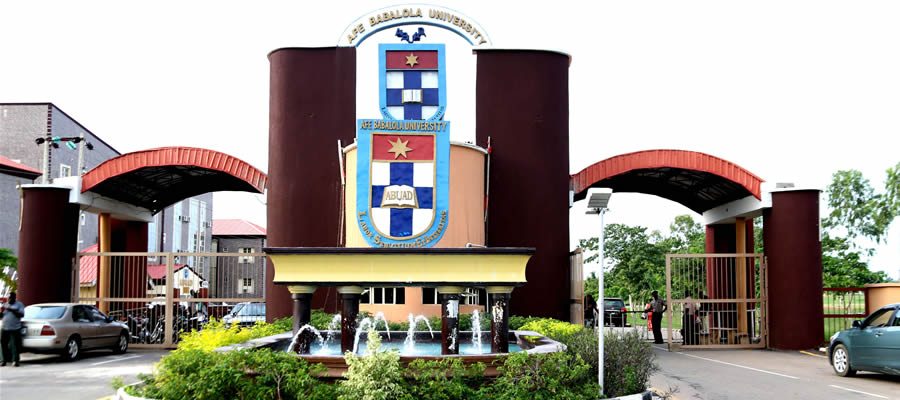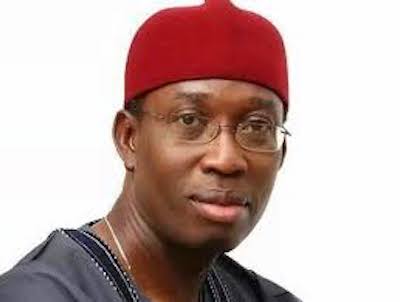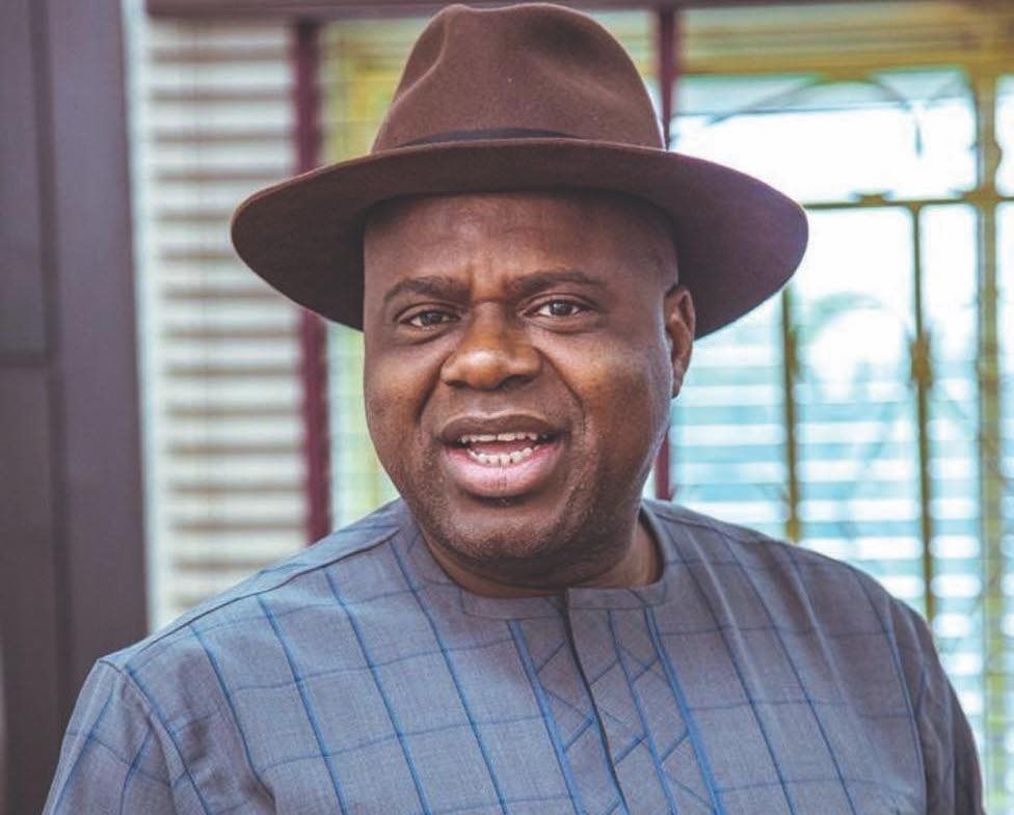Education
Lingering FG-ASUU Disagreement: An Invitation to Anarchy

Kevin Okunzuwa writes that the three months strike by the Academic Staff Union of Universities (ASUU) has shattered the public tertiary education sector enough such that all should be done by all stakeholders including the Federal Government and the university teachers to ensure that the additional 12 weeks for good measure must not be allowed to run out.
What began as a warning strike on February 14, 2022, by the Academic Staff Union of Universities (ASUU), is today threatening the fabric of Nigeria’s education sector.
ASUU’s first warning strike was for four weeks and the second strike, which began on March 15, was for another four weeks.
With the third warning strike announced on May 9 for another 12 weeks, the burden on both parents and students, are unarguably, not easy.
The lecturers’ demands include funding for the Revitalisation of Public Universities, Earned Academic Allowances, University Transparency Accountability Solution (UTAS) and promotion arrears.
Others are the renegotiation of 2009 ASUU-Federal Government agreement and the inconsistency in Integrated Personnel Payroll Information System (IPPIS).
Students of 43 federal universities and 37 state-owned universities nationwide, affiliated to ASUU are currently at home as a result of the strike.
Stakeholders in education sector have appealed to both the Federal Government and ASUU to resolve their differences in the interest of Nigerian students and parents.
Mrs Arinola Badmus, a parent, lamented the further extension of the strike, saying that it would cause more harm to the students, communities and the larger society if not immediately addressed.
Badmus decried the extension of the strike,
adding that the display of ‘I don’t care attitude’ of the government had brought about the present situation.
“We can say that the union is insensitive, but what about the government. Why are they always shying away from their responsibilities?
“This is not the first time the union will be putting their demands before the table, the government should answer them so that our children can return to school.
“Many of them were about writing examination before the strike. Now they will be spending additional 12 weeks after they had stayed at home for 12 weeks before.
“This is very sad, don’t forget that when these children are not engaged with something, they end up becoming nuisance to the society, so the government must note this to avoid problems,” she said.
A political analyst, Mr Rotimi Lawrence, appealed to the government and the union to dialogue and reach a decision that would benefit Nigerian students.
Lawrence expressed worry over the extension of the strike, saying that it would further boost enrolment into private universities, while the children of the poor would continue to suffer deprivation.
Mr Bayode Fatoba, a civil servant, described the situation as unfortunate and disturbing. He said that his children were experiencing delays in their academics as a result of incessant strikes by ASUU.
Fatoba noted that the education sector of the country would suffer serious setback if the Federal Government did not meet the demands of ASUU.
“Honestly, the current strike embarked upon by ASUU will destroy the academic standard of our university education in Nigeria if the Federal Government decides to ignore them.
“My two children in the university are idling away at home, sleeping and playing.
“I am, therefore, appealing to both parties to resolve their differences and call-off the strike in the interest of Nigerian students,” he said.
Mr Bode Oguntuase, a teacher, said the extension of the strike by ASUU was not good for the education system of the country.
He said that those affected by the strike were students whose time were being wasted and their parents, who would pay more for their children’s education.
“I want to appeal to both ASUU and the Federal Government to resolve their differences to enable the students resume academic activities.
“It is quite unfortunate that the Nigerian education system is undergoing challenges, thereby causing setbacks for students.
“For example, a student who ought to have graduated in 2022 might end up graduating in 2023 or 2024; this is unfair,” he said.
Angered by the extension of the strike and inability of the parties to resolve the issues, the National Association of Nigerian Students (NANS), said they would shut down the economy.
Mr Sunday Asefon, the National President of NANS, condemned the extension of the strike and inability of the parties to reach an agreement.
Asefon in a statement he issued on May 9, said: “The 3-month extension of the strike is totally condemned. The failure of the government to reach agreement with ASUU underscores their lack of concern and empathy to the plight of the common men and women of our nation who couldn’t afford private tertiary institutions.
“Having exhausted all windows of constructive engagement with the government. I, on behalf of the national leadership of NANS, therefore declare National Action from May 10.
“The National Action, tagged `Operation Test Run,’ shall be held in all the 36 states of the federation.
“Federal roads across the 36 states shall be occupied for a minimum of three hours.” The operation shall be a precursor to a total shutdown that will be decided during our Senate meeting/pre-convention on May14,” he said.
Asefon said that the decision of the association from the convention would be binding as they would be total.
He said the extension of the ASUU strike was a direct declaration of war against university students.
“Our proposal to congress on May 14 shall be total blockage of the airport roads across the country and total disruption of political party primaries, blockage of the National Assembly until they are committed to passing legislation banning public office holders from sending their children to universities abroad.
“I, therefore, call on NLC, TUC and civil society organisations to join us to salvage the remaining crackers of our public tertiary education,” he said.
While the student body has gradually, started to carry out its threat with blocking of roads, concerned Nigerians fear the situation may turn ugly if not quickly nipped in the bud.
Since NANS’ announcement, pockets of protests have been reported in some parts of the federation.
In Benin, students of various tertiary institutions, on May 9, in compliance with NANS directive, blocked the entrance to the airport and the ever busy Airport Road over the prolonged ASUU.
The incident created traffic gridlock along the busy Airport Road and extended into adjoining roads in the GRA of Benin City.
The students were drawn from the Federal Government-owned University of Benin and the state-owned Ambrose Alli University, Ekpoma.
The students later moved to the secretariat of the Nigeria Union of Journalists (NUJ), Edo State council to register their grievances.
The Students’ Union Government (SUG) President of UNIBEN, Foster Amadin, appealed to the media to reach out to those connected with the protracted ASUU strike, so that the students could go back to school.
“We are lending our voices and we are appealing to whosoever is concerned, we have also come here as students who know the importance of the media to express our displeasure over the lingering ASUU strike.
In Enugu, the Progressive Students Movement (PSM), a students’ movement, also on Tuesday, May 10, urged Nigerians and elder statesmen to intervene in the lingering ASUU strike in public universities.
PSM National President, Mr Bestman Okereafor, said: “We consider the laissez-faire attitude of the Federal Government towards the continued ASUU strike as a deliberate mockery of Nigerian students and the education sector.
“As Progressives, we have consulted, persuaded, consolidated on the continued ASUU strike which is doing more harm than good, especially academically, even as it affects the future of Nigerian students.
“It will not be out of place for Nigerian students’ leadership to proceed to the shutting down of both the APC and PDP national party secretariats to force them to hear our voices on the strike,” he said.
Okereafor said to avoid the consequences of planned students’ protest, it was important that relevant stakeholders should prevail on the government and the lecturers to end the strike immediately.
Ahead of the shut down by students, Senate President, Sen. Ahmad Lawan, said the Senate would intervene to end the lingering dispute between the Federal Government and ASUU by bringing them back to negotiation table.
Lawan made the promise on May 10, in Abuja, to the leadership of NANS who were led to his office by a concerned Methodist Bishop, Sunday Ndukwo Onuoha.
The NANS President, Asefon, who spoke, decried students’ continued stay at home and disruption of their academic programmes.
He urged the senate president to intervene in the dispute between the Federal Government and the university teachers.
Lawan decried the turn of events, recalling that the Senate had intervened in the past before everything broke down again.
He, however, promised that the Senate would wade in again and expressed optimism that the issues would soon be resolved.
“You are in the right place. We are going to intervene. We will make concerted and sustained efforts to bring back ASUU and the Federal Government to the negotiating table.
“So that we are able to resolve as quickly as possible those issues that are now very knotty and have stopped our universities from reopening.
“But I want to appeal to you too, since we are going to make effort to bring back everybody back to the negotiating table, you should give us a chance to do that believing that we are going to find a solution.
“Because it is not only enough to bring them back to the negotiating table, but we will participate and I want to make sure that we find the solution when we start the negotiation again.
“Now that you have come here, we are going to make sure that everybody in this sector especially those in public sector who have responsibility and mandate perform their functions. We will make sure they do that.
“Because you have come, I think we also have some tonic enough in us. Time is of essence and we must do whatever is necessary to get this issue resolved,” he said.
Responding to the threat by the students to disrupt political activities, Lawan appealed to them to continue in the path of consultation and avoid confrontation.
“I want to also advise, I don’t think it will be necessary to disrupt political activities. We shouldn’t do that and we don’t need to do that.
‘What we need to do is to continue to follow the path of consultation, consolidation and avoid confrontation. It is when you emphasise consultation, it is much easier for us to find something that you can consolidate.
“Your prayer that you want the Federal Government and ASUU back to negotiate and resolve the issues. We have taken this prayer. We have endorsed it and we will work for it as quickly as possible.
“It is an opportunity for me also to appeal to ASUU to suspend this strike, because there is no way ASUU can negotiate with the Federal Government when it is on strike.
” So it is an opportunity for us to have them, at least create a window, suspend the strike for a certain period and let us see how far we can go.
“I want to be very positive that we are going to resolve this issue as soon as possible by the Grace of God,” Lawan said.
The senate president said the 2009 agreement which was the subject of the matter was not properly thought out before it was signed.
“Somebody just wanted ASUU to go back to the classroom and just signed everything there. We must understand that there are things that when we promise we should do, we must do,” Lawan said
Students, parents and other stakeholders are optimistic that the senate president’s promised intervention will speedily bring to an end the Federal Government-ASUU disagreement to save the nation from the impending disruption of economic activities by students. ( NANFeatures)
Education
ICPC, COREN Working to Curb Quackery in Engineering – Don

Former Registrar, Council for the Regulation of Engineering in Nigeria (COREN), Prof. Adisa Bello said the council is collaborating with the Independent Corrupt Practices Commission (ICPC), to curb quackery in Nigeria.
Bello stated this in Bauchi on Monday during a public lecture and launching of a magazine by the final year students of Engineering Department, Abubakar Tafawa Balewa University (ATBU), Bauchi.
According to Bello, COREN has an Engineering Regulatory Monitoring Unit visible and working in 29 states of the country.
“If the unit finds anyone culpable of quackery, the person will be handed to the ICPC for further prosecution.
“COREN with the council for regulation of Engineering in Nigeria started in 1970, and its laws were amended in 1992, 2004 and 2018.
“The specific one I’m referring to is the amendment in 2018, which categorically gave COREN the mandate to prosecute offenders of engineering,” he said.
He warned that anybody that was not a registered practitioner in engineering and practicing engineering would be prosecuted by COREN.
“And COREN is doing everything humanly possible to ensure that this is done. COREN currently has a memorandum of Understanding with the Independent Corrupt Practices Commission, and this commission is doing everything possible to ensure that offenders are prosecuted,” he said.
Bello, also a lecturer in the department of Mechanical Engineering, ATBU, recounted how a multi-billion Naira 21 storey building collapsed in Lagos, where COREN did investigation, after which some engineers were found wanting and handed over to the ICPC for prosecution.
“COREN has an investigative panel and once this panel establishes that someone is culpable, it takes you to the ICPC and then straight to the court.
“In my day, we normally write examinations for qualifications.
”We have a situation currently where an individual came with a fake result and we called on the ICPC and they have done all their investigations, and found the person culpable and right now he is under prosecution,” he said.
The don called on higher institutions and academics to ensure that all engineering programmes were properly accredited by the National University Commission (NUC) and COREN.
In a paper entitled: Smart Cities and the role of Engineering and Technology in building the Urban future, Dr. Ibrahim Ikara, Head of Department, Civil Engineering, ATBU, said engineers played a critical role in smart cities.
Ikara said that this could be through the design of modern infrastructure, disaster resilient systems and eco-friendly neighborhoods.
Represented by Muhammad Suleiman, the don listed some of the challenges of building smart cities in developing nations to include infrastructure deficit, limited funding, and low level of digital literacy among citizens.
He urged policymakers to prioritise Science, Technology, Engineering and Mathematics (STEM), to achieve the set goals.
Education
Afe Babalola Canvasses Better Education Sector to Check Insecurity

Founder of Afe Babalola University, Ado-Ekiti (ABUAD), Afe Babalola, has identified Nigeria’s declining educational standards as a key driver of the country’s escalating crime rate.
The legal luminary spoke recently during a courtesy visit by a delegation from Ekiti State University (EKSU), led by its Vice-Chancellor, Prof.
Joseph Babatola Ayodele.According to him, “half education is more dangerous than no education.
Many of those engaged in criminal activities today are products of a failing educational system. We must urgently rewrite Nigeria’s educational narrative to foster national development and security.”Babalola challenged policymakers, institutions, and stakeholders to prioritise research grants, innovation, and academic excellence as critical tools for national progress.
In her welcome address, ABUAD’s Vice-Chancellor, Prof. Smaranda Olarinde, lauded Babalola’s visionary leadership, crediting him for establishing the university as a trailblazer in agriculture, pharmaceuticals and quality healthcare education and delivery.
She spotlighted the peerless and paperless ABUAD Multi-System Hospital, which leading healthcare stakeholders have endorsed as the “Well-equipped hospital in Sub-Saharan Africa” as the nation’s antidote to medical tourism.
Taking cognisance of the under-representation of women in the visiting EKSU delegation, the Vice Chancellor canvassed greater gender balance in leadership, just like in ABUAD, where the Vice Chancellor, Registrar and the Librarian are ladies among several leaders in the 15-year-old university.
Responding, the visiting VC praised Babalola as “an unrepentant philanthropist and proud alumnus, who constantly adds value to society.”
He expressed admiration for ABUAD’s state-of-the-art infrastructure, and called for deeper collaboration between the two institutions in agriculture, research and student exchange programmes.
“We have much to learn from ABUAD Farm. With 14 hectares of tomato farms at EKSU ready for harvest, we recognise the need to deepen expertise in agriculture, a vital sector for Nigeria’s future,” Ayodele remarked.
Education
JAMB Inaugurates Special Committee on Examination Infraction

The Joint Admissions and Matriculation Board (JAMB) has inaugurated a special committee to investigate cases of technology-driven malpractice detected during the 2025 Unified Tertiary Matriculation Examination (UTME).
Inaugurating the 23-member committee in Abuja yesterday, JAMB’s Registrar, Prof.
Ishaq Oloyede, expressed concerns over the rising sophistication in perpetrating exam fraud.Oloyede revealed that the results of 6,458 candidates remained under investigation for alleged involvement in high-tech cheating.
“This year, we came across a number of strange things and we felt that it would be better if we expand our resources.
“We believe that God has endowed this nation with a lot of resources that we can tap from,” Oloyede said.
He noted that malpractices had evolved beyond traditional schemes into “technologically sophisticated forms,” including multiple cases of biometric and identity fraud by some accredited CBT centres and candidates.
Oloyede stressed the need for urgent action to protect the credibility of examinations.
“Examination malpractice is something that we must fight with every pinch of blood in our veins.
“This is because unchecked fraud could harm several sectors and tarnish Nigeria’s image,” he said.
The registrar disclosed that while 141 cases of “normal” exam malpractice had been sent to JAMB’s disciplinary committee, the committee would handle the “extraordinary infractions,” such as image blending, albinism falsification, finger pairing, and attempts to breach some CBT centres’ Local Area Network.
He listed the terms of reference of the committee to include: Investigate all the cases of image blending, finger blending, false claim of albinism and result falsification in the 2025 examination.
“Identify the methods, patterns, tools, and technologies used to perpetrate this infraction.
”Review current examination and registration policies and recommend improvements,” he said.
Other terms of reference, he said, are to determine the culpability or otherwise of each of the 6,458 suspected candidates whose results, excluding the albinism group, are still being withheld, among others.
“We have chosen three weeks because justice delayed is said to be justice denied.
“In about four weeks, admission will close. And we believe that those who are found not to be guilty should have the opportunity,” he added.
Responding, the committee chairman Dr. Jake Epele, thanked Oloyede’s leadership and pledged the committee’s commitment and dedication to the assignment.
“Examination malpractice is not just a breach of rules. It is a direct assault on integrity, merit, and the future of our nation’s youth.
“The task before us is therefore a sacred one. I believe that everyone in this committee, you don’t have a committee job. You have a call from God Almighty.
“The call is to defend the credibility of our examination, restore public confidence, and ensure that diligence and honesty remains the true pathway to opportunity,” he said.
Members of the committee include Prof. Muhammad Bello, Prof. Samuel Odewummi, Prof. Chinedum Nwajiuba, Prof. Tanko Ishaya, Prof. Ibe Ifeakandu, and Police Commissioner Fatai Owoseni (rtd.)
Others are: Dr Chuks Okpaka of Microsoft Africa, and the President of the National Association of Nigerian Students, among others.


























